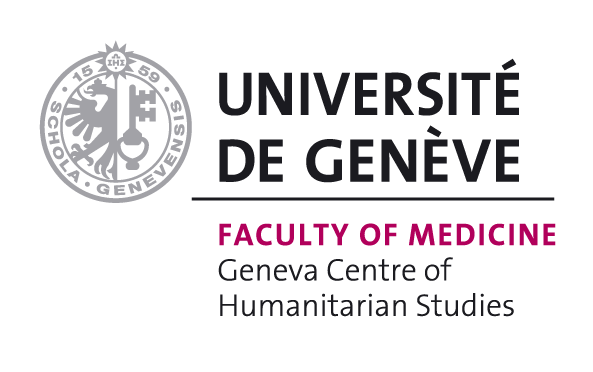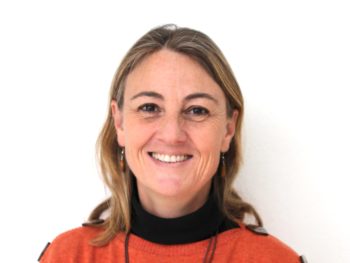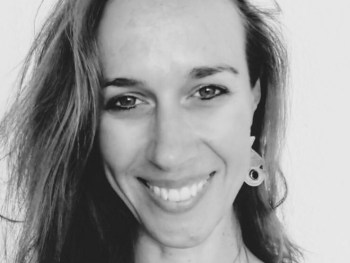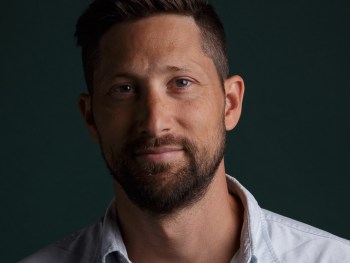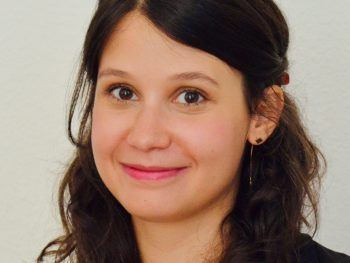The Geneva Centre of Humanitarian Studies is a unique platform for teaching, research, and dialogue in the field of humanitarian action.
Our vision
Current and aspiring humanitarian professionals have access to past and latest evidence-based knowledge to better respond to the needs of populations in crisis.
Our mission
Through research, education, and humanitarian dialogue and exchange, the Centre will strengthen the capacity and practice of humanitarian professionals wherever they work in order to empower them to respond effectively to global humanitarian challenges.
We also aim to contribute to critical reflections on contemporary humanitarianism with the view of bringing positive transformations to the humanitarian system.
Strategy 2021-2025
The aim of our 2021-2025 strategy is to ensure the Centre keeps pace with the changing humanitarian landscape as it provides relevant, timely training for humanitarian professionals, carries out pertinent research on under-researched issues within the sector and offers a neutral space for debate on sensitive subjects.
Within the strategy, the Centre undertakes to fulfill three institutional commitments to:
- breakdown barriers to access learning opportunities for humanitarian professionals in middle and lower income countries
- ensure our training and research is multi-faceted, and covers a wide range of perspectives and schools of thought that explore humanitarianism
- adapt the Centre to humanitarian reality by continuously analyzing new trends and under -researched issues
The Strategy includes four strategic pillars: Education, Research, Humanitarian Exchange, and Management, Collaboration & Partnerships.
The strategy reflects on the changing humanitarian landscape and the challenges this produces, including those most recently caused by the COVID19 pandemic which has exacerbated national protectionism, increased the marginalization of vulnerable communities and has seen the principle of working ‘for the common-good eroded, in the race to find national solutions.
In response to the many challenges that make the transformation of the sector difficult, the Centre will;
- make training as accessible as possible by increasing online and blended courses
- provide more scholarships for participants from lower and middle income countries
- support refugees and migrants who have seen their education interrupted
- explore under-researched issues and trends and share all findings free and widely
- be a neutral entity where debate can take place in confidence
The Centre will evolve in close collaboration with its institutional and humanitarian partners including the University of Geneva, ICRC and MSF.
Education and Research
We offer a wide range of academic courses and conduct various research projects looking at under developed areas of interest in humanitarian action.
Our courses provide in-depth training on humanitarian topics such as negotiation, protection, planetary health, and addressing sexual violence, as well as project management in humanitarian settings. They are based on an innovative pedagogical model designed for adult education, in order to strengthen the practitioners’ competencies and apply the theoretical knowledge, developed during the courses, directly to their professional environment.
Our interdisciplinary research projects foster critical analysis of the humanitarian sector to encourage reflection on professional practices as well as the politics of humanitarianism and humanitarian organizations.
We also promote critical reflection of the humanitarian system through research projects developed by our researchers on current issues either in the field or in collaboration with major humanitarian organisations and academic centres. Current research includes analysis of the impact of attacks on healthcare, migration to and within Europe and the health implications, and health systems thinking in humanitarian settings.
Find out more in our 2023 Annual Report.
In the 1970s and 1980s, some of the larger humanitarian organisations based in Geneva started offering operational training for humanitarians. A decade later, in the aftermath of the Rwanda genocide, the Balkans war and the ensuing mass mobilisation of new humanitarian actors, the need to ‘professionalise’ the sector became evident.
1998 – Back then, there were no academic courses on humanitarian action, but thanks to the University of Geneva, several international organisations and the Swiss Ministry of Foreign Affairs, a Plurifaculty Programme for Humanitarian Action – PPAH, was born. The Plurifaculty Programme for Humanitarian Action was the first iteration of the Geneva Centre of Humanitarian Studies. The objective of this visionary programme was to offer high-level, continuous education for humanitarian practitioners.
2004 – The programme was radically transformed under the impulse of the University of Geneva and the Graduate Institute of International and Development Studies (IHEID) and re-named PIAH – Interdisciplinary Programme in Humanitarian Action. PIAH offered a wider course programme, including a Master of Advanced Studies in Humanitarian Action, in partnership with the International Committee of the Red Cross and Médecins Sans Frontières Switzerland.
2008 – The partnership between the University of Geneva and the IHEID changed the programme’s name into CERAH – Centre for Education and Research in Humanitarian Action. In 2012, the Centre expanded its course offer by adding to the Master DAS, CAS and Executive Short Courses. In 2017, the Centre launched its Humanitarian Encyclopedia research project, and in 2018 it celebrated its 20th anniversary.
2020 – We have evolved further and became the Geneva Centre of Humanitarian Studies. The name reflects a new vision for the Centre: we used 2020 – a challenging year for everyone – as a foundation to learn and build on our experience of distance learning and research collaborations, to assess what further transformations are needed and feasible to increase access and availability of our courses and research to frontline humanitarian workers and organisations.
MANAGEMENT
ACADEMICS
TEACHING SUPPORT
ADMINISTRATION
COMMUNICATIONS
The Geneva Centre of Humanitarian Studies was created in its present form in 2008 by an agreement between The Graduate Institute of International and Development Studies (IHEID) and the University of Geneva (UNIGE).
The Supervisory Committee
It is the general supervisory body. The Rector of UNIGE and the Director of IHEID sit on the Committee. The Committee’s main tasks are:
- Nominate the president of the centre’s Board of Directors on the basis of a recommendation from the board;
- Monitor the application of the strategy proposed by the board, and ensure that it falls within the framework of the general strategy of the University and the IHEID;
- Approve the annual budget and accounts in addition to the annual report.
The Board of Directors
It is the strategic governing body. It is composed of representatives from UNIGE, IHEID and several humanitarian organizations. In addition, two eminent individuals are co-opted to serve on the board. Its tasks are:
- Guide and monitor the centre’s strategy;
- Identify, orient and ensure the implementation and internal oversight of teaching, research and other activities in order to achieve the Centre’s objectives;
- Develop and transmit course regulations to the competent authorities and oversee their application;
- Deal with conflicts involving students through a Mediation Commission established within the Board.
